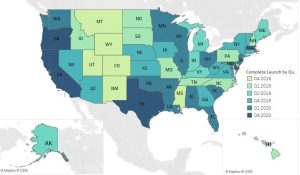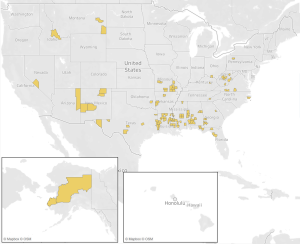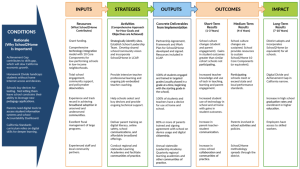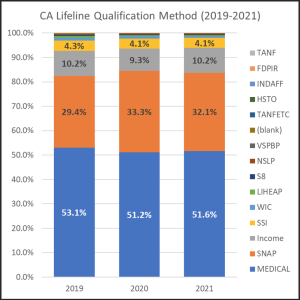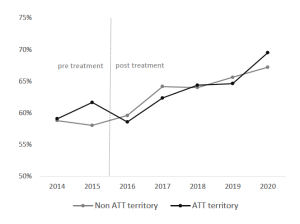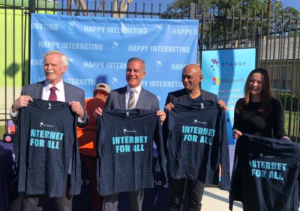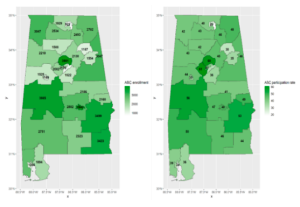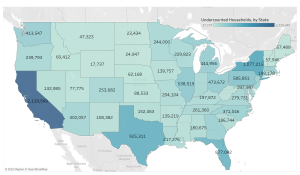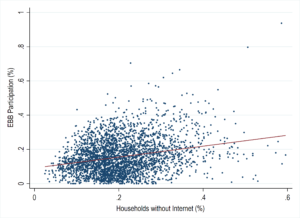Publications
Lifeline and the now defunct ACP (Affordable Connectivity Program) have helped millions of families afford Internet services that support online learning, remote work, and access to telehealth, among many other uses linked to social and economic wellbeing. However, individuals and families entitled to receive these benefits often have to navigate a complex web of procedures…
Read More »Evaluating the Impact of the Affordable Connectivity Program
Authors: Hernan Galperin and François Bar
Did ACP have a measurable impact on broadband access? Did the program help connect low-income families that otherwise would not have been connected? As the ACP program winds down, these questions become ever more important for policymakers and policy advocates. In this study, we offer preliminary evidence that ACP in fact helped increase broadband adoption…
Read More »MEDIA Executive Summary Report
Authors: François Bar and Hernan Galperin
This report summarizes findings from the Measuring the Effectiveness of Digital Inclusion Approaches (MEDIA) project, which evaluated different programs and regulatory mechanisms to increase residential broadband adoption on a sustainable basis. The project set out to answer fundamental questions about these initiatives, with a focus on those launched after the onset of the COVID-19 pandemic,…
Read More »Pivoting to On-Line Teaching in the Riverside Unified School District
Authors: Julie Leyba and Eduardo Gonzalez
This case study reviews how the RUSD and its S2H participating schools took steps to mitigate the digital divide. An evaluation of RUSD and its S2H schools suggests important recommendations on how digital inclusion programs can provide sustainable digital inclusivity for all students, parents, and teachers. The lessons RUSD learned during the pandemic offer benefits…
Read More »The California Lifeline Program
Authors: François Bar, Eugene Jang, and Heonuk Ha
California’s Lifeline program is widely recognized as one of the most successful state Lifeline programs and therefore constitutes an important case for the MEDIA project to study. This report examines the history and characteristics of California Lifeline, including historical participation rates, the program’s targeting efficiency, and barriers to enrollment. It identifies the following three main…
Read More »In recent years, state and federal regulators have imposed obligations on Internet Service Providers (ISPs) to offer affordable broadband plans as a condition for approving proposed mergers and acquisitions. The details vary in each case, but the obligation typically involves making available a basic, standalone broadband plan at a price significantly below market rates for a…
Read More »Digital Inclusion in Public Housing: The case of HACLA
Authors: Hernan Galperin and Ke Huang-Isherwood
This report explores the digital equity efforts of the Housing Authority of the City of Los Angeles (HACLA), one of the largest public housing organizations in the U.S. Based on expert interviews and a review of public documents from HACLA, this report reveals how barriers for connectivity faced by families that received housing assistance can be…
Read More »Broadband Vouchers: Evaluating the Alabama Broadband Connectivity Program
Authors: Erezi Ogbo
The Alabama Broadband Connectivity (ABC) for Students program had high uptake among eligible families, particularly in areas with more digitally vulnerably people and areas with majority Democrat voters. The program presents evidence on three critical design elements for increasing uptake in broadband affordability programs: (1) Targeted outreach through trusted messengers; (2) Remove barriers to enrollment;…
Read More »Estimating participation in the Affordable Connectivity Program (ACP)
Authors: Hernan Galperin
Since the launch of the Affordable Connectivity Program (ACP) in January 2022, there has been a great deal of interest in estimating how many eligible households are taking advantage of this new program that helps connect low-income Americans to broadband. This policy brief compares different methods for estimating ACP eligibility, which in turn affect estimates…
Read More »A Roadmap for Affordable Broadband: Lessons from the Emergency Broadband Benefit [updated October 2022]
Authors: Hernan Galperin
The EBB program was created to mitigate the short-term impact of the pandemic on the most vulnerable households, reducing the cost burden of broadband connectivity for recipients. As the program transitions into a longer-term subsidy, it is important to take stock of its impact and adjust course as needed. Overall, the findings of this study…
Read More »